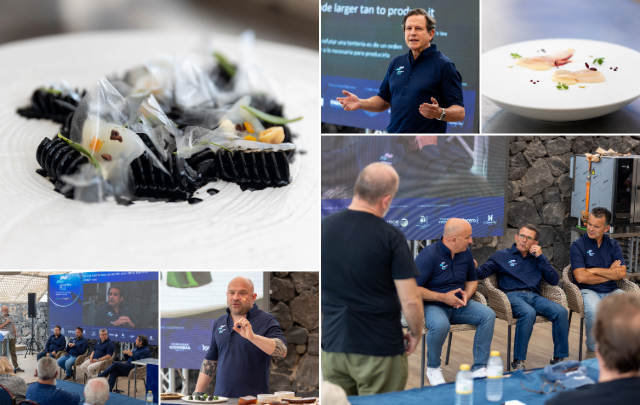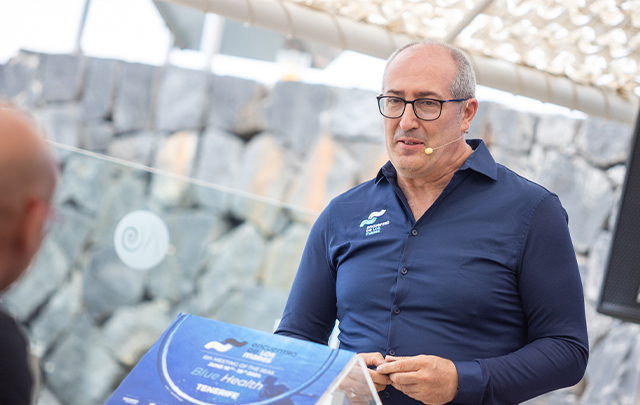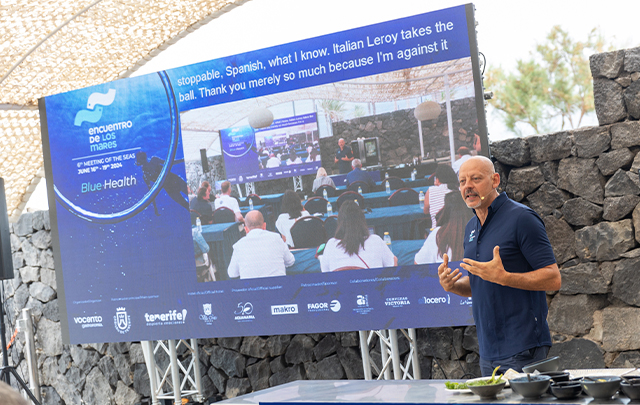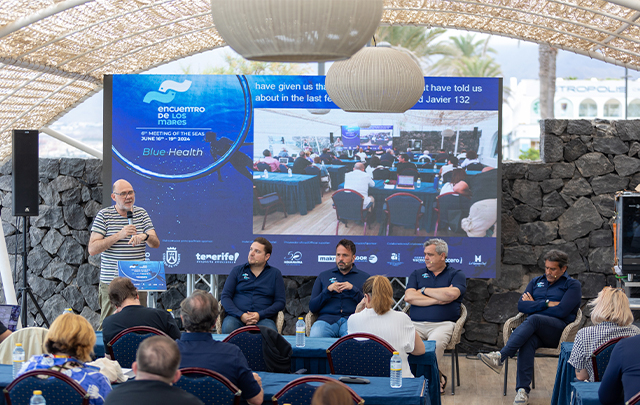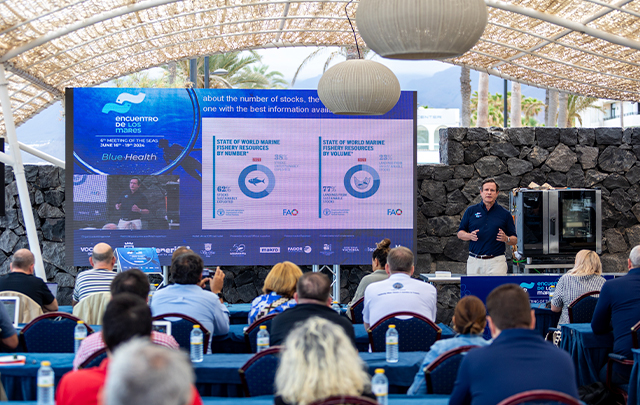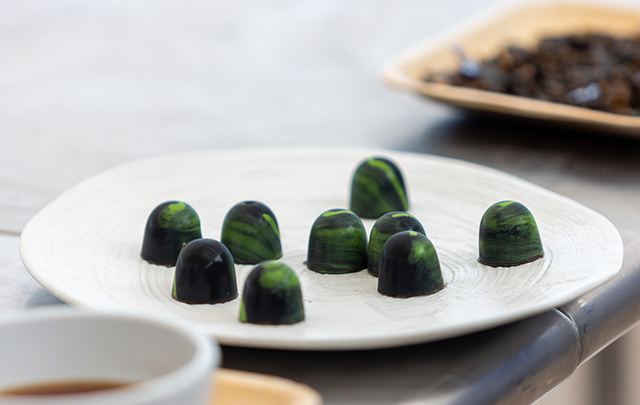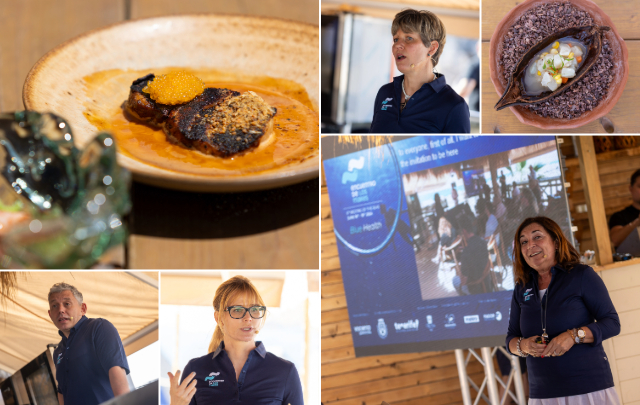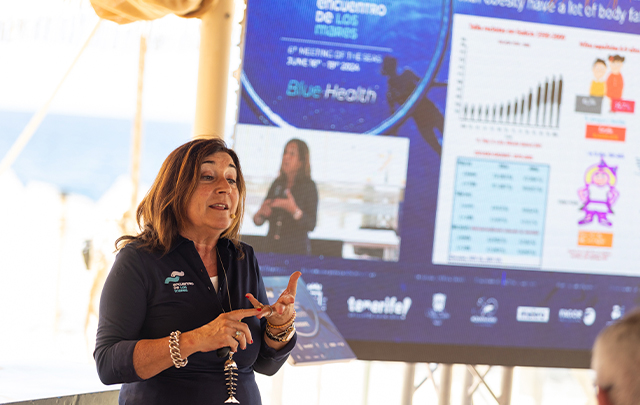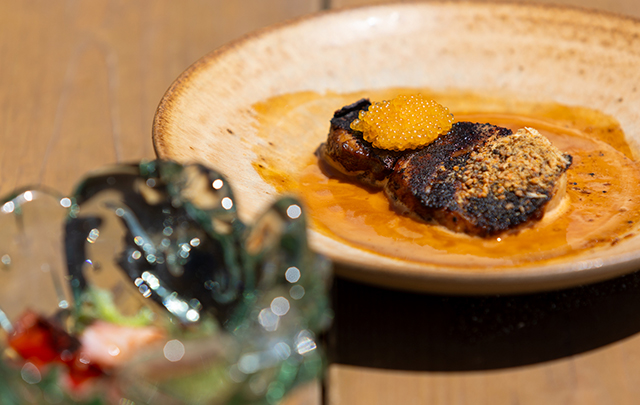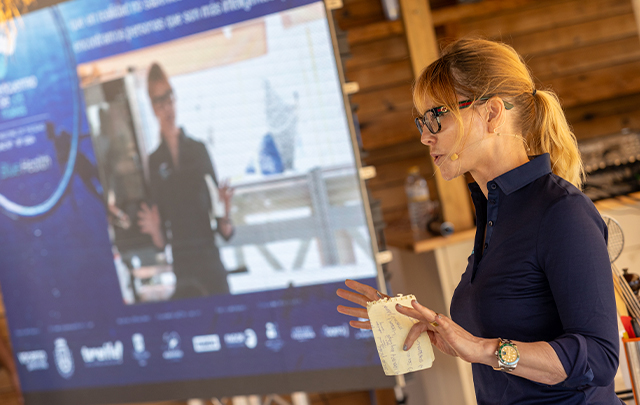News
Tenerife learns how to treat fish from Galicia
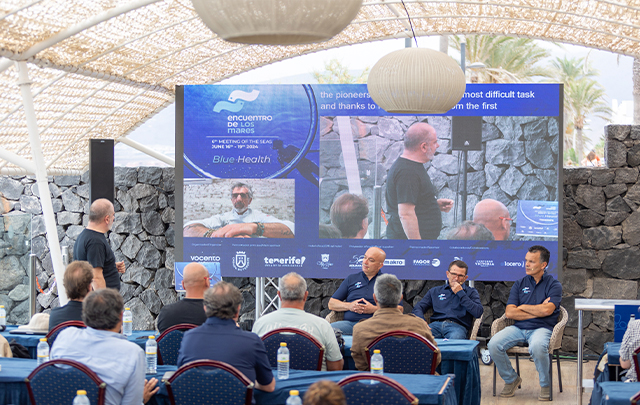
Local fishermen and chefs went to the estuaries of Arosa and Vigo to understand the excellent Galician treatment of fish. A documentary film has been made of this trip, promoted by Encuentro de los Mares.
The director of Vocento Gastronomía, Benjamín Lana, moderated an exciting debate between some of the protagonists of the short film 'From Tenerife to Santa Uxía de Ribeira: 945 nautical miles of cooperation', which was presented for the first time today. The film was made at the last edition of the Congress and tells the story of the journey made by chefs and fishermen from Tenerife to discover the work that Roberto Rodríguez, director of Artesáns da Pesca, and the Galician chef Pepe Solla (Casa Solla*, Poio, Pontevedra) are doing with small-scale fishing. The aim? To help the Canary Islands industry improve the way it produces and markets fish.
A lover of the product above all else, Pepe is clear that "we chefs must establish a very close relationship with those who supply us with it, because if the fisherman knows what I want a turbot for, he will know how to bring me the turbot I need". In this respect, he admits that his profession has done a lot of things wrong, because just as we invest time and effort in constantly developing new cooking techniques, he does not do the same to get to know the product, "which is what really sets us apart. As a chef, I take my clothes off in front of the product," he says, insisting that "the fish in the sea is perfect, and if we don't know it well, we spoil it. We have to be up to the task". For Pepe, it is essential to share knowledge, "because nobody has the absolute truth. Secrecy only impoverishes you", and he asks the administration to encourage this exchange, while at the same time being agile in implementing new regulations.
Supplier to Casa Solla and other exceptional restaurants in the country that accept his conditions - only seasonal fish of the day - Roberto Rodríguez runs an artisanal, responsible and sustainable fishing project on the Galician coast. He shared his passion for treating the product well with the Galician delegation, because he believes that "knowledge is a synergy that makes the effort worthwhile" and he never tires of explaining that "we must not mistreat the fish, because that robs it of all its quality". Having dedicated his life to the sea, he assures us that "there are good and bad practices in all sectors, and fish markets are no exception". He also believes that management can promote knowledge, including the intervention of science, "because the scientific data is unique". Albacore tuna is the same, even if it has different names in different regions or countries.
"We are lagging behind and need to keep up to date"
On behalf of the visiting delegation, Manuel Díaz Marcelino gave a very positive assessment of the experience and is convinced that there is still work to be done in Tenerife. "We have excellent raw materials, but we must learn to treat them as they do in Galicia," he asserts. Manuel is the patron of the Los Cristianos Fishermen's Guild, a key organisation in the representation and management of the interests of the local fishermen of this coastal town, and he recognises the shortcomings from his side of the sea, although he also points out that "the chef must also know the product very well in order to assess how it is caught and processed, on which the quality and price depend.
He was accompanied by Juan Carlos Clemente, a gastronomic consultant who has worked with hotel chains such as the 5-star luxury Iberostar Hotels & Resorts in the Canary Islands and renowned restaurants such as El Cingle (Barcelona), Coque (Madrid) and Martín Berasategui (Gipuzkoa). At the end of the meeting, Juan Carlos acknowledged that "life is about sharing mistakes and successes, and this makes us all better, both those who teach and those who learn", advocating greater contact with fishermen and warning that "the chef is always willing to pay whatever price he has to pay if he is sold a quality product". As for whether the administration should get more involved, he believes that "we need to become more professional without being dependent on aid".

